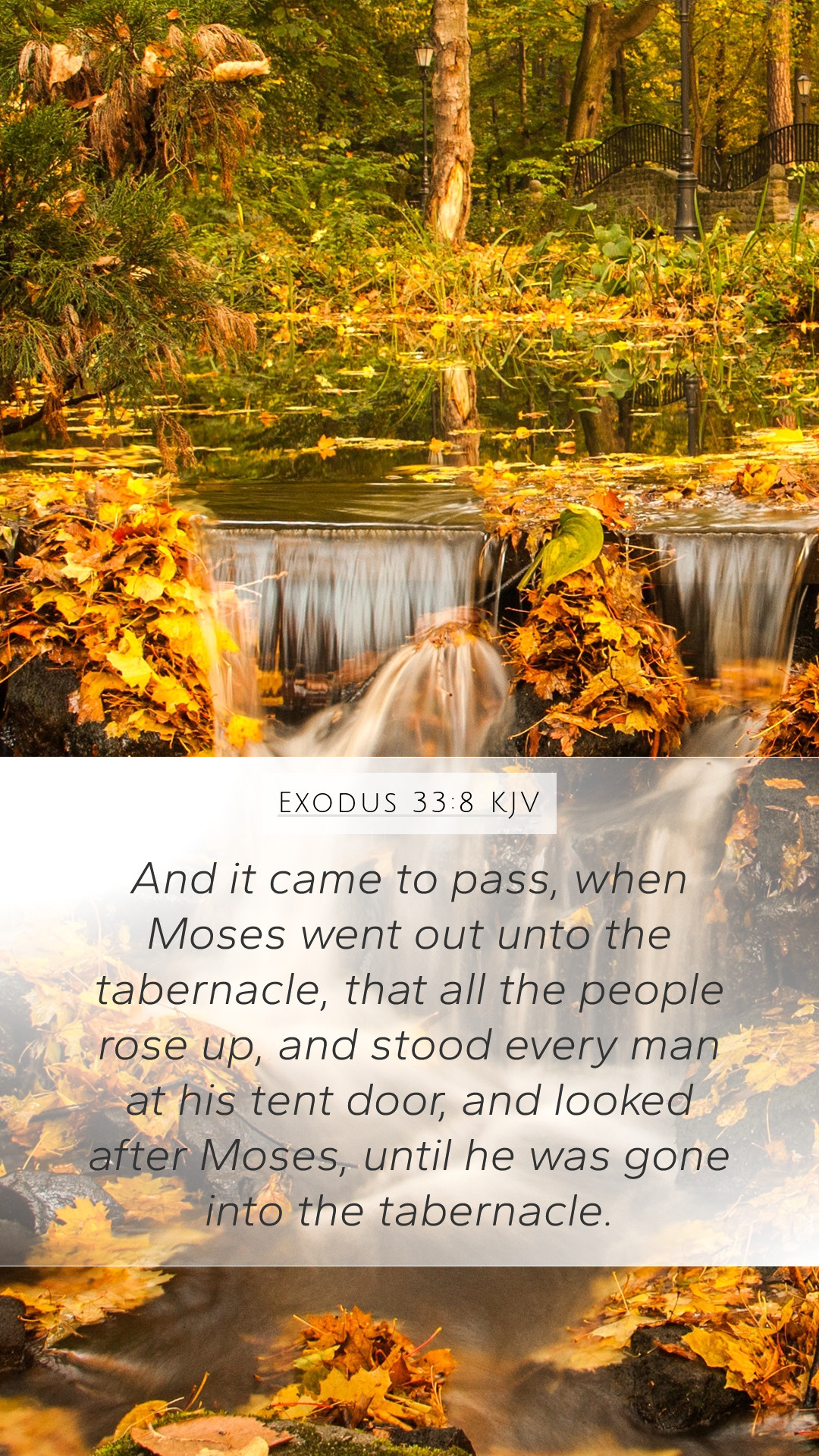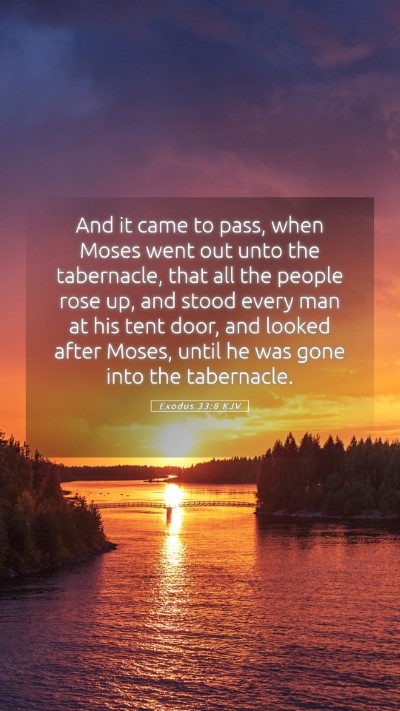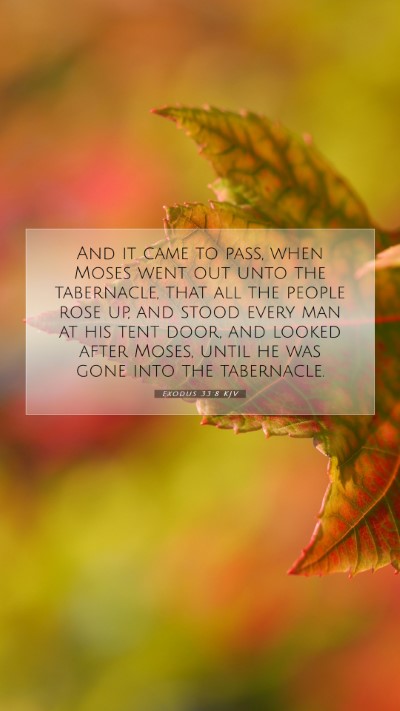Understanding Exodus 33:8
In Exodus 33:8, we find a profound moment that reflects the relationship between Moses and God. The verse states: "And it came to pass, when Moses went out unto the tabernacle, that all the people rose up, and stood every man at his tent door, and looked after Moses, until he was gone into the tabernacle."
Overview of Exodus 33:8
This verse is situated in a critical narrative section of Exodus where Moses is interceding with God on behalf of the Israelites after their grave sin of idolatry with the golden calf. The act of Moses entering the tabernacle represents a deep theological significance where the presence of God is met, and communication with the Divine occurs.
Insights from Public Domain Commentaries
Matthew Henry's Commentary
Henry notes that this moment reveals the awe and respect the people had for Moses and, consequently, for God. When Moses went into the tabernacle, it was not just a physical movement; it signified a spiritual journey into the divine presence. Henry elaborates that the anticipation of the people standing at their tent doors symbolizes the gravity of Moses' role as mediator between God and Israel, representing their longing for God's presence.
Albert Barnes' Notes
Barnes explains that the tabernacle serves as a meeting place where God's glory was revealed. The people’s act of standing and watching signifies their faith and their recognition of Moses' authority. Moreover, he points out that this illustrates the Israelites' dependence on Moses for guidance and communion with God, which is central to understanding their relationship with the divine and with one another.
Adam Clarke's Commentary
Clarke emphasizes that this passage showcases the profound reverence the Israelites had for Moses. His entry into the tabernacle was a serious matter that carried the weight of the entire nation's sins and aspirations. Clarke also reflects on the implications this has for understanding how leaders are viewed and the spiritual duty they carry in guiding and interceding for their people.
Themes and Applications
- Moses as Mediator: This verse illustrates the significant role of Moses as the mediator of the covenant between God and Israel. The concept of mediation is central to Christian theology as well, where Jesus is understood as the ultimate mediator.
- The Importance of Divine Communication: The tabernacle represents a place where God meets humanity. This encourages reflection on how we engage in communication with God today, whether through prayer, worship, or reading Scripture.
- Community and Reverence: The actions of the Israelites standing at their tent doors symbolize a communal acknowledgement of the holiness of God and the importance of collective worship and respect for spiritual leaders.
Cross References
- Exodus 29:43-46 - The presence of God in relation to the tabernacle.
- Exodus 34:29-30 - Moses' reflection of God's glory after speaking with Him.
- Hebrews 9:11-12 - Christ as the greater tabernacle and mediator.
Conclusion
Exodus 33:8 holds multi-layered meanings that can enhance our understanding of Scripture. Through this verse, we see the dynamics of leadership, the sanctity of God's presence, and the communal aspect of faith. It invites reflection on our own lives as we seek to understand Bible verse meanings, interpretations, and how we can apply these ancient truths to our contemporary context.


